RIZAL, Philippines — Months before Masungi Georeserve Foundation forest rangers were shot in July, tension had already been in the air.
Men wearing bonnets entered a rangers’ station and threatened an employee’s partner with a gun last May. Five days later, park rangers heard gunshots while tending to a patch of land inside the Upper Marikina River Basin Protected Landscape (UMRBPL).
A few days before the shooting incident, cameras used to monitor illegal activities in the area were stolen.
Policarpio Olalia, a Masungi ranger stationed near the area where private resorts have mushroomed, couldn’t help but get nervous.
“I was told, ‘just go home, don’t work here or else your boss will find you stinking and surrounded by flies,’” he said in an interview, two days before colleagues Kukan and Melvin were shot.
While Masungi has been successful in raising public awareness about the dangers its workers and the protected area have faced, threats continue to persist.
The foundation’s reforestation manager received a text message in August which read: “If you don’t leave Masungi or if you cause trouble, we’ll go after your girlfriend. A pity, she’s beautiful.”
In September, he received another warning: “I thought you’re leaving Masungi. You’re really testing our patience. Remember, we know your weakness!”
For eight consecutive years, the Philippines has the ignominious reputation of being the worst place in Asia for land and environment defenders, according to a Global Witness report.
An international NGO dedicated to a more sustainable, just and equal planet, Global Witness has been gathering data on attacks against land and environmental defenders since 2012. Last year, it recorded 29 killings in the Philippines, over half of which were directly linked to people’s opposition to mining, logging and dam projects.
‘Late’ proclamation
The Upper Marikina watershed was designated as a reservation in 1904 by virtue of a US colonial executive order issued by Governor General Luke Edward Wright.
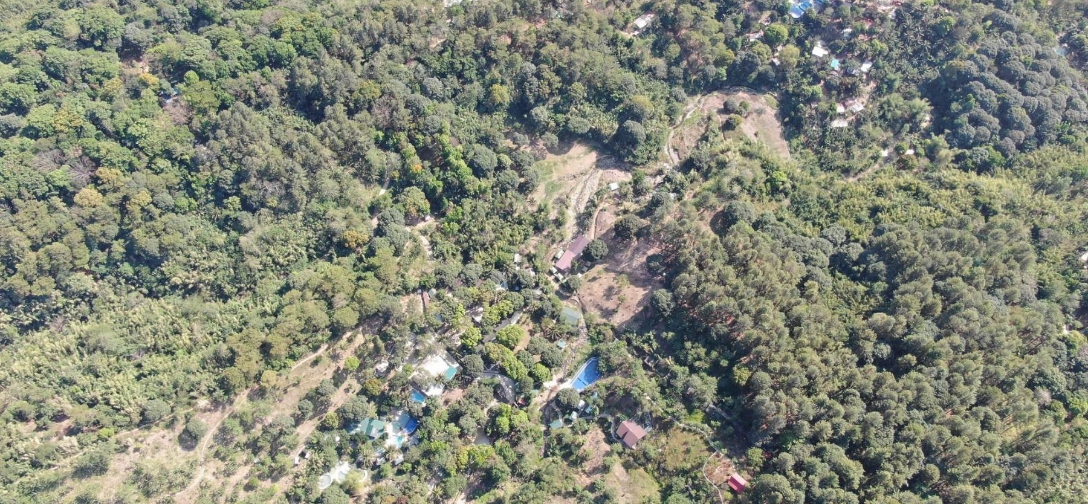
This undated handout photo shows resorts built inside the Upper Marikina River Basin Protected Landscape. Masungi Georeserve
But the Philippine government only declared it a protected area in 2011 through Proclamation 296, two years after Typhoon Ondoy inundated Marikina.
The proclamation means the watershed should be free from destructive human exploitation. But by the time it was issued, structures had long been set up, while quarry companies had been given rights to operate in the area.
This “late” proclamation is making things complicated, said Executive Director Nilo Tamoria of the Department of Environment and Natural Resources (DENR)-Calabarzon.
“The problem is that prior to the proclamation as protected landscape in 2011 and legislation in 2018 (Republic Act 11038 or the Expanded National Integrated Protected Area System Act), there were tenurial instruments issued there,” Tamoria said.
In 2014, there were over 1,300 households of tenured migrants, or those who had been occupying a portion of the protected area for five years before the declaration. Meanwhile, there were more than 2,000 non-tenured migrants.
“So when Masungi began their reforestation efforts, there were already built-up areas there,” said Aida Ceniza, UMRBPL assistant protected area superintendent.
In July, DENR Calabarzon said it had issued 80 show-cause orders and 43 cease-and-desist orders to people illegally occupying portions of the watershed, including owners of houses constructed along river easement and of resorts, retreat centers and piggeries.
This is part of the inventory of facilities within the protected area. RA 11038 states that an inventory of structures such as roads and buildings within the protected area shall be conducted within 60 days from the effectivity of the law, which was passed in 2018.
Quarry firms
Among the biggest and constant threats to the watershed are quarrying and mineral extraction. There are three Mineral Production Sharing Agreements (MPSAs) within the protected area held by two firms Quarry Rock Group, Inc. and Rapid City Realty and Development Corporation. The MPSAs cover around 1,100 hectares of forestland in the towns of Baras and Tanay.
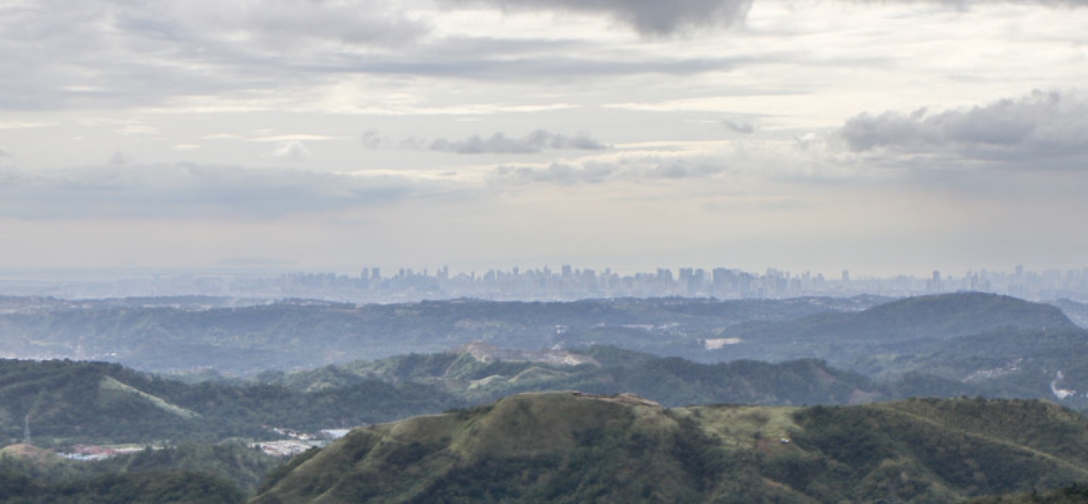
Mountains in Rizal and the skyline of Metro Manila are seen in this February 7, 2021 photo. Philstar.com/EC Toledo
The Mines and Geosciences Bureau (MGB) Calabarzon said the contract areas under the three MPSA were “established to be embraced by private rights.”
It cited proclamations signed by former presidents Ferdinand Marcos and Benigno Aquino III stating that the watershed reservation is subject to the operations of previous proclamations and property rights.
MGB Calabarzon also said the MPSA contractors were granted clearances to operate because the contract areas were segregated from the Marikina watershed and were opened to exploitation under a Marcos-era decree.
The segregated areas have since passed into private ownership.
MGB said the MPSAs are in “non-operating status” and have approved Care and Maintenance Programs, which are implemented in cases of voluntary stoppage or suspension.
There are also 24 existing and valid MPSAs within Rizal that are outside of the UMRBPL. Although outside of the protected area, these quarry companies contribute to the degradation of forest lands that form part of the watershed, according to the Advocates of Science and Technology for the People (AGHAM).
In March, the Upper Marikina Watershed Coalition—a network of over 60 groups, including Masungi—urged the Duterte administration to rescind all MPSAs to halt destructive activities in the area.
Weak enforcement
Masungi Georeserve Foundation, a private entity, is planting and maintaining trees in the protected area at no cost to the government in a bid to heal the watershed under the agreement with DENR.
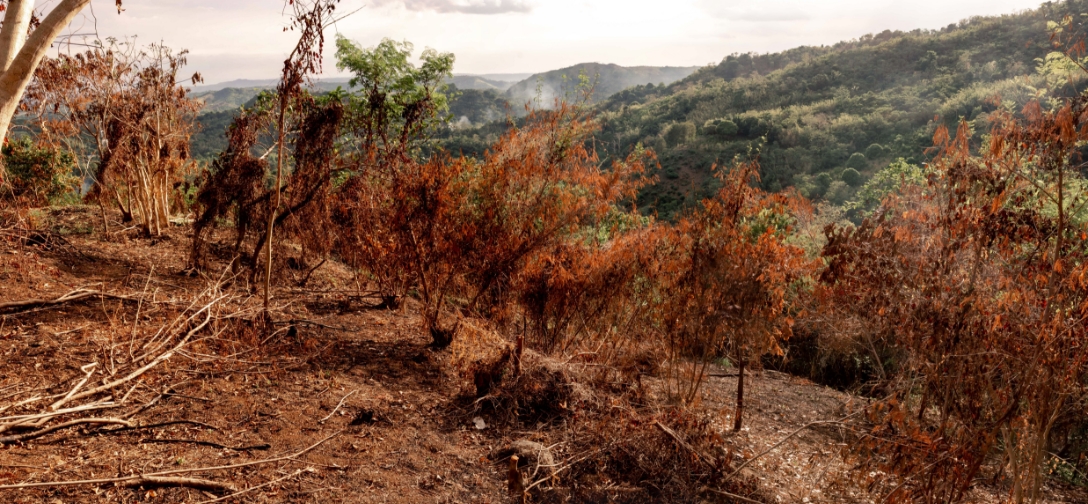
This undated handout photo shows dead trees inside the protected area after the clearing of forest lands. Masungi Georeserve
The department, meanwhile, is in charge of ejecting illegal occupants from the project site and canceling tenurial instruments with violations or those that had been fraudulently issued.
But the poor enforcement of environmental laws, lack of resources and neglect are enabling illegal activities and allowing impunity to prevail not only in the Upper Marikina watershed but also in other protected areas across the archipelago.
Tamoria acknowledged that the environment department is “very weak” on enforcement.
Masungi employees said serious and swift interventions are needed if we are to save what is left of the Upper Marikina watershed. But for an area where the dangers are clear and present, the most urgent demand of workers is additional security assistance.
“For rangers like us, we hope for protection from the government so we can conserve and save the watershed,” Policarpio said.
The foundation also asked the DENR to assign a counterpart project manager for an urgent and effective response to any illegal and violent activities.
Another problem plaguing conservation efforts in the country is the lack of warm bodies to guard the protected areas. Masungi employs over a hundred forest rangers, mostly from surrounding upland communities, but they are not enough to guard the vast reforestation site, where many parts are still hard to reach.
According to the DENR, the ideal ratio is one ranger for every 500 hectares of forestland. But there is only one guard per 4,000 hectares of protected area in the country—an area the size of 1,619 football fields.
Proposed bureau
The proposed Environmental Protection Enforcement Bureau (EPEB) under DENR is seeking to address the problem with enforcement of environmental laws and the lack of manpower.
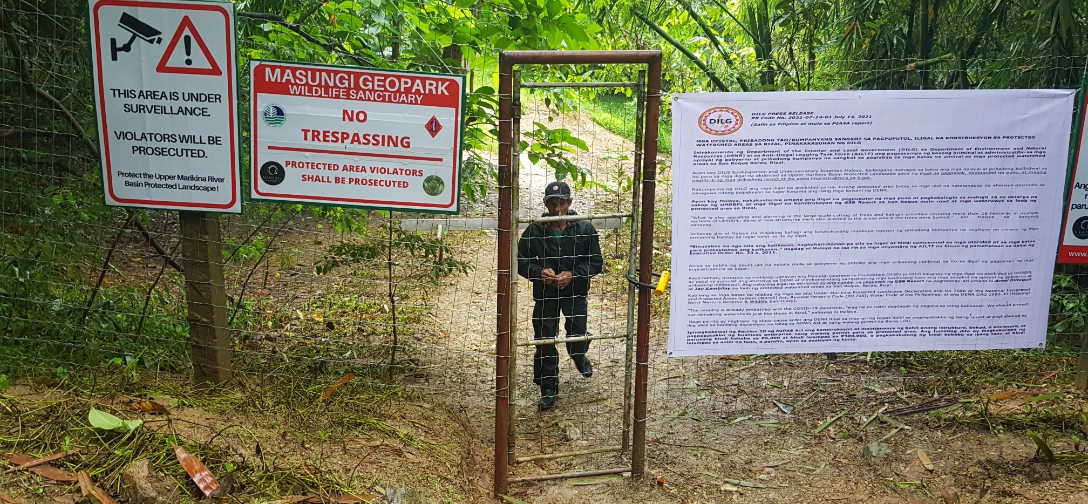
A forest ranger opens a checkpoint inside the reforestation area. Philstar.com/EC Toledo
House Bill 6973 filed by Deputy Speaker Loren Legarda (Antique) gives EPEB the power to issue cease-and-desist orders on its own and order the removal of illegal structures as well.
It also seeks to empower rangers to carry firearms for enforcement operations and personal security, a proposal that environmental groups say could lead to abuse. Masungi workers do not carry firearms.
“DENR is the primary agency for conservation, development, utilization and protection. The enforcement is subsumed. It’s good our Secretary [Roy Cimatu] came from an enforcement agency being the former chief of staff of the Armed Forces of the Philippines,” said Tamoria, who was the former executive director of the agency’s Environmental Protection and Enforcement Task Force.
In a letter to Masungi, Tamoria recommended that the foundation’s rangers be deputized as environment and natural resource officers to give them authority to enforce laws.
But for Billie Dumaliang, Masungi trustee, the cure to the watershed’s problems is so simple if only state actors do their job.
They just need to implement the law. It’s already there. They need political will to implement the law without fear nor favor,” she said.
Taking care of nature in peace
Olalia used to make a living by cutting down trees in Quezon province. The flash floods and landslides triggered by Tropical Depression Winnie, which swamped his hometown Real as well as neighboring Infanta and General Nakar and killed more than 1,500 people in 2004, forced him to move to neighboring Rizal.
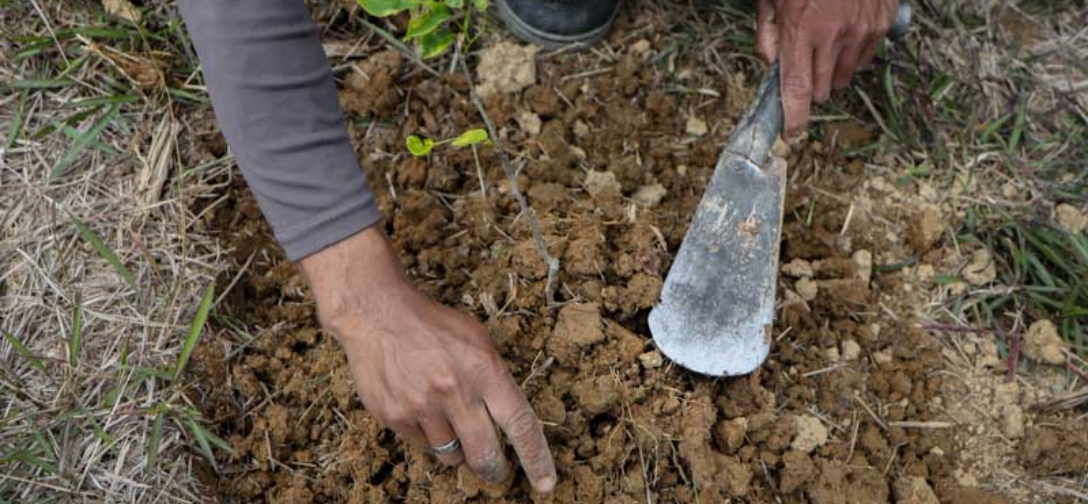
A forest ranger of the Masungi Georeserve gets rid of stubborn weeds surrounding a delicate seedling on February 7, 2021. Philstar.com/EC Toledo
But due to the lack of employment opportunities in his new home, he turned to charcoal making. Then, in 2011, he joined Masungi as a ranger—a move that made him realize the significance of taking care of the environment.
“When I became a ranger, I told myself that this was an opportunity to atone for my sins. I realized the importance of planting trees when I joined Masungi,” the 55-year-old ranger said. He added that a lot has changed since the start of reforestation efforts there.
To prevent another flooding event similar to Typhoon Ulysses, the DENR has begun dredging activities in Marikina River. The agency is also planning to plant bamboo trees on restored riverbanks to prevent erosion and siltation.
Equally important is reforesting denuded areas and conserving remaining forests in the UMRBPL, which will prevent water from pouring unimpeded to low-lying areas.
Aside from serving as flood control and water filtration, watersheds such as the Upper Marikina also act as carbon sinks. Carbon sinks are places that absorb carbon from the atmosphere, which play a vital role in keeping the levels of heat-trapping carbon dioxide at manageable levels.
Masungi estimates that the protected area currently stores 160,000 tons of carbon, equivalent to 66 million gallons of gasoline consumed. Once it is fully restored, the area is expected to sequester almost one million tons of carbon and sequester even more every year.
The project site is still a grassland, which is the second stage of forest succession. It will take many years and a lot of effort to keep the area undisturbed to aid its healing and turn it into a secondary forest.
Olalia finds joy in taking care of trees and plans to do so until age catches up with him.
But until the government provides them additional security assistance and support, and strengthens the implementation of laws, Olalia, his colleagues Kukan and Melvin, and hundreds of Masungi employees will be in danger.
And the watershed they are protecting will stay vulnerable, affecting millions of people downstream, in the face of a climate crisis.
This story was produced in collaboration with the Kalikasan People's Network for the Environment, with the support of Internews' Earth Journalism Network and Asian Center for Journalism.
